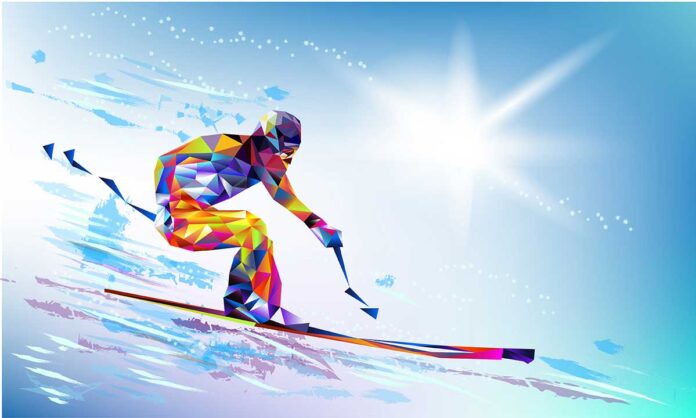Just like the summer iteration one year ago, this year’s winter Olympics in Beijing will have a record number of out LGBTQ athletes. Outsports has reported that at least 35 Olympians will compete in curling, figure skating, ice hockey, skiing, snowboarding, and other winter Olympic sports. The number is more than double that of the 15 out athletes who competed in 2018. And the 2022 number will certainly increase as more and more athletes come out in the lead up to and during the games, which begin on February 2. (The opening ceremonies are February 4.)
There are some notable statistics of the breakdown of LGBTQ athletes at these Olympic games. The sport with the most out athletes is hockey (12), followed by figure skating (10), and the countries with the most out athletes are Canada (10), the United States (6), Great Britain (4), and Sweden (3).
This year, the Canadian women’s hockey team has the most out athletes of any team sport with seven. Just four years ago, though, there was only one out woman hockey player at the Olympics, Emilia Andersson Ramboldt from Sweden. Canada’s women’s hockey has seen a surge of players become open about their sexuality in the past four years. In addition to hockey, there are many more figure skaters who are openly LGBTQ at the 2022 Olympics (10) then there were in 2018 (3).
Also interesting is the breakdown of out athletes by gender. At last year’s summer Olympics, one out of ten LGBTQ athletes were men. At this year’s winter Olympics, that number jumps to three out of ten. 2018 was the first year that there were any out male athletes at the winter Olympics. 2022 has three times that number.
The openly LGBTQ American athletes (as of press time) are: figure skaters Jason Brown and Timothy LeDuc; ice hockey player Alex Carpenter; skeleton competitor Andrew Blaser; and speedskater Brittany Bowe. In addition, figure skater Amber Glenn is an alternate, and former Olympian Adam Rippon will be in Beijing as a coach. Rippon is notable as being the first publicly gay male figure skater.
The sharp rise in LGBTQ athletes at every subsequent Olympic games shows a greater acceptance of LGBTQ people and reminds us how important LGBTQ visibility in sports is. PGN’s very first issue featured Dave Kopay, the former NFL player who came out in 1975. But such events were not common. Now, they are.
One other note about the Olympics. There have been many groups calling for boycotts or other forms of protest because the games are being held in Beijing, China. The anger, while understandable, should not be directed at the athletes. Calling for the games to be cancelled does the athletes a disservice. They deserve the showcase that the Olympics provides. Instead, people need to put pressure solely on the backs of the International Olympic Committee, which chooses the host cities for the games. Olympic host city selection has had numerous scandals, and while the IOC is making attempts at remedying at least parts of the city selection process, they still have much ground to make up.
But one thing that the Olympics does, and continues to do, is provide a spotlight on the athletes, and as such, a spotlight for the LGBTQ athletes and the LGBTQ community. For that, they should be applauded.
